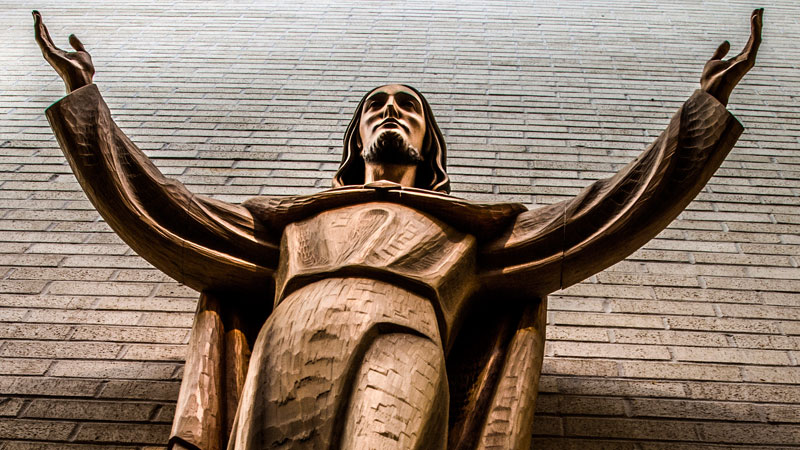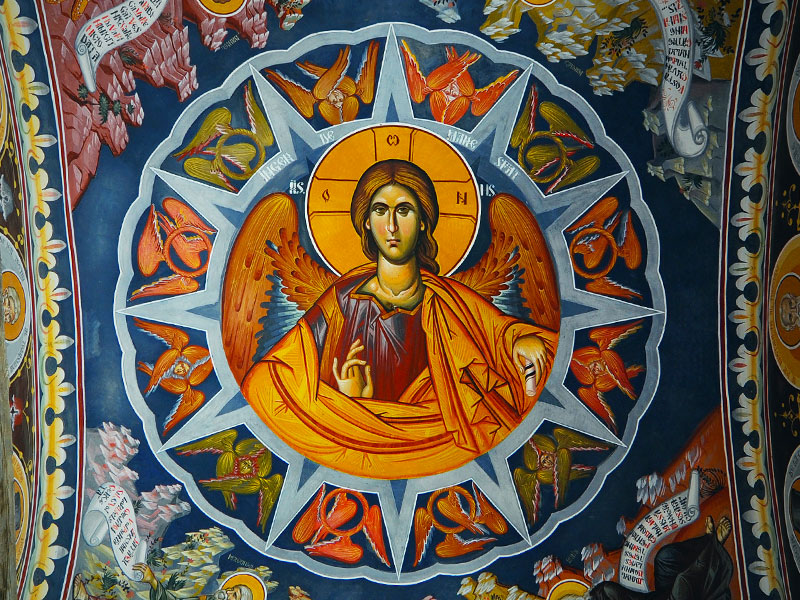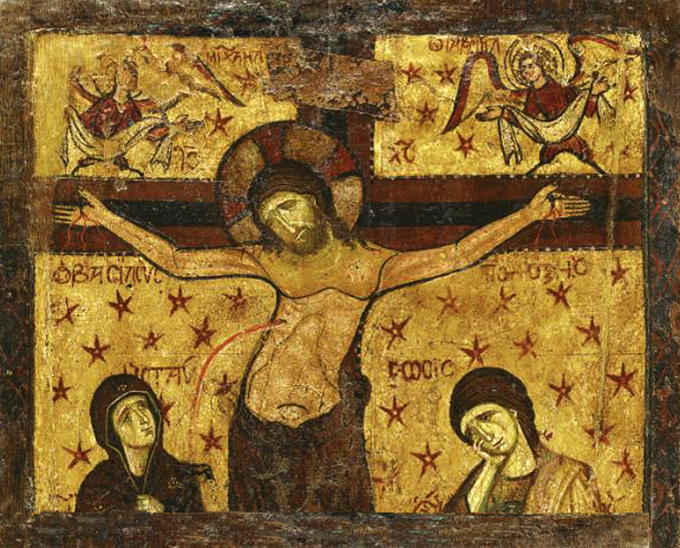Since the children have flesh and blood, he too shared in their humanity so that by his death he might break the power of him who holds the power of death — that is, the devil — and free those who all their lives were held in slavery by their fear of death. (Hebrews 2:14-15)
First, let’s notice what the author of Hebrews identifies here as the problem that is solved by the death of Christ. It is not sin but death, which is to say, the power of death, and the power of him who holds the power of death. It may come as a surprise that the one identified here as holding the power of death is not God but the devil. But God is not the one who kills.
God has the power of life, not of death. Death is nothing in itself; it is the absence of something. Just as darkness is nothing but the absence of light, so death is nothing but the absence of life. Christ is life, and when he encounters the power of death, as he did at the cross, it is “game over” for death. There is simply no contest.
In Revelation 1:18, Christ says, “I am the Living One; I was dead, and now look, I am alive for ever and ever! And I hold the keys of death and Hades.” But what does he do with those keys? In Revelation 20, both death and Hades (the place of the dead) are cast into the “lake of fire,” but before they are, they are emptied out.
At the cross, Christ broke not only the power of death, but also the power of the one who held the power of death, that is, the devil. In 1 John 3:9, we read that Christ came to destroy the works of the devil. This, too, happened at the cross and was revealed in the resurrection when Christ broke the gates of Hades and set its captives free.
Now, let’s look at how the author of Hebrews describes what the power of death and of the devil does: It causes us to fear, and that fear leads us into bondage. But Christ has broken that power so to “free those who all their lives were held in slavery by their fear of death.”
Fear of death is a terrible bondage, causing people to do all sorts of things to avoid it, or else to get all the pleasure they can out of this life before they meet their inevitable end (supposing that death has the last word). It is fear of death that whispers in us, “What shall we do? How shall we survive?” Jesus speaks to this deep anxiety in his Sermon on the Mount:
So do not worry, saying, “What shall we eat?” or “What shall we drink?” or “What shall we wear?” For the pagans run after all these things, and your heavenly Father knows that you need them. But seek first his kingdom and his righteousness, and all these things will be given to you as well. (Matthew 6:31-33)We live in bondage and the fear of death when we do not know we have God as our loving Father who takes care of us in every way. It causes us to live as orphans, believing we must make do for ourselves in whatever way we can. Fear of death blinds us to the truth: “The Spirit you received does not make you slaves, so that you live in fear again; rather, the Spirit you received brought about your adoption to sonship. And by him we cry, ‘Abba, Father’” (Romans 8:15). “For God has not given us a spirit of fear, but of power and of love and of a sound mind” (2 Timothy 4:7).
There is an illuminating scene toward the end of the comedy movie, Moonstruck. It is a brief conversation between Rose Castorini (Olympia Dukakis) and Johnny Cammareri (Danny Aiello).
Rose: Why do men chase women?Fear of death is a terrible bondage. But Christ rescues us from it, having delivered us from the power of death and of the devil — and so from the power of sin. He did this:
Johnny: Well, there’s a Bible story ... God ... God took a rib from Adam and made Eve. Now maybe men chase women to get the rib back. When God took the rib, he left a big hole there, where there used to be something. And the women have that. Now maybe, just maybe, a man isn’t complete as a man without a woman.
Rose: [frustrated] But why would a man need more than one woman?
Johnny: I don’t know. Maybe because he fears death.
[Rose looks up, eyes wide, suspicions confirmed]
Rose: That’s it! That’s the reason!
Johnny: I don’t know ...
Rose: No! That’s it! Thank you! Thank you for answering my question!
- By the Incarnation, in which he fully participates with us in our humanity (and we participate with him in his divinity).
- By the Cross, where he experienced the full measure of our mortality, destroying the power of death and the works of the devil.
- By the Resurrection, shattering the gates of Hades through the victory of his death, binding the strong man — the devil — and liberating captive humanity.
- By his Ascension to the right hand of the Father, leading captivity itself — death and Hades — captive, showing himself as Lord and victor over them. And being emptied out, they are finally cast into the “lake of fire.”
- By Pentecost, where he poured out upon all people the gift of the Holy Spirit, the Spirit by whom we cry out “Abba, Father,” so that no longer need we live in fear of death or of anything else.



















